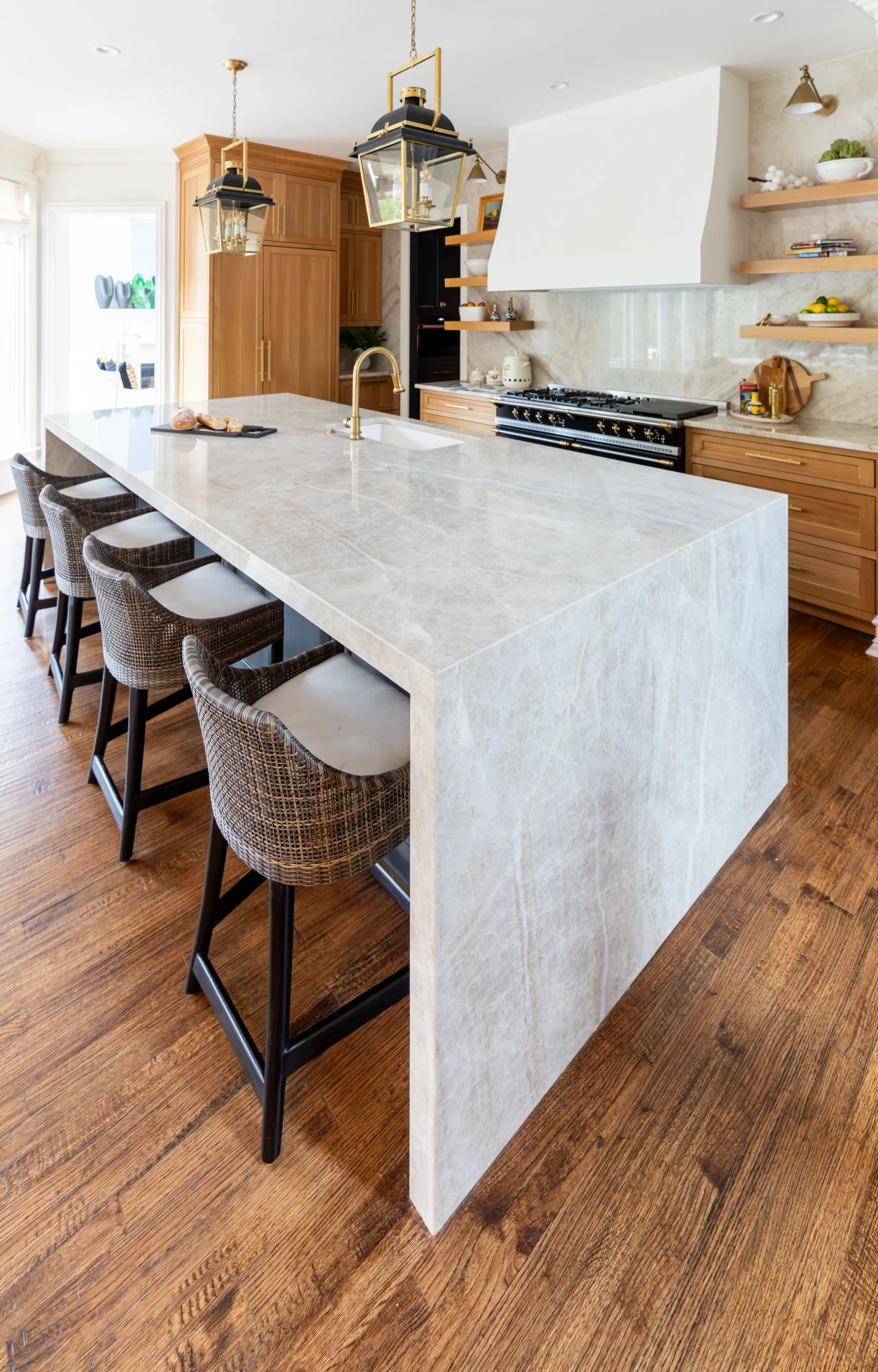Under significant heat and pressure within the Earth’s crust, sandstone is transformed into quartzite. This process gives the stone durability and patterns it with quartz crystals in varying colors, making each slab unique. Together, these properties make quartzite a commonly selected stone for countertops. Here are some benefits of quartzite countertops:
Durability
Quartzite is hard and dense, making it naturally resistant to chipping and scratching. This enables counters to withstand dropped pans, knife cuts, or potential damage from cleaning chemicals. However, quartzite does benefit from periodic sealing. While it is less porous than marble, some varieties of quartzite can absorb liquids and stain over time, depending on their density and mineral composition. Quartzite countertops are an ideal long-term solution for home chefs who use their kitchen frequently.
Heat Resistance
Quartzite is highly heat resistant. While it withstands high temperatures, prolonged direct heat can cause surface discoloration and stress fractures. Cooks, chefs, and bakers can set hot pots, pans, and cookie sheets directly onto a quartzite counter without causing cracking. Yet, like all-natural stone, it may be damaged by thermal shock or a rapid temperature change. To protect quartzite, take the following precautions:
- Use rivets and hot pads: Placing hot pads or trivets underneath hot objects limits direct heat exposure.
- Avoid sudden changes in temperature: Make sure the quartzite is at room temperature before placing very hot or cold items on its surface.
- Review heat limits for quartzite sealers: Some counters are sealed to protect against moisture. While the stone is heat resistant, the sealer may not be.
Low Maintenance
Quartzite’s density makes it less likely to suffer surface damage, so it usually requires minimal maintenance compared to other stone countertops. However, some varieties (particularly those with a higher percentage of feldspar or impurities) may still be susceptible to acidic substances. If you are unsure, double-check with your Allied Gallery representative.
Regular cleaning with mild soap and water helps keep the stone’s surface looking like new. We recommend avoiding cleaners containing hydrofluoric acid, which may break down the silicates that contribute to quartzite’s durability. It also does not need to be polished to retain its natural shine.
Like many natural stones, quartzite is porous and can absorb water or other liquids. If the counter is not sealed against moisture, staining is possible. At Allied Gallery, we can pre-seal quartzite before installation and provide guidance on reapplying sealant as needed.
Natural Beauty
The colors and patterns in quartzite are created as the sand and minerals in sandstone are recrystallized during metamorphosis. Quartzite slabs are usually white or gray and can be swirled with blues, greens, pinks, and reds. This makes each stone unique, adding a natural luxury to your kitchen or bathroom. Allied Gallery has a large selection of quartzite slabs in various sizes and thicknesses. We can help clients review our product catalog to find a stone that matches their current kitchen fixtures or bathroom designs.
Invest in Quartzite Countertops Today
Quartzite counters add natural beauty and functionality to your kitchen or bathroom. The stone is highly durable and heat resistant, enabling it to retain its shine and surface quality for many years. Allied Gallery offers a 3D visualizer so you can explore our inventory and test combinations of quartzite counters, wood cabinetry, and tile backsplash. Contact us today to learn more about our available stone materials and installation services.

